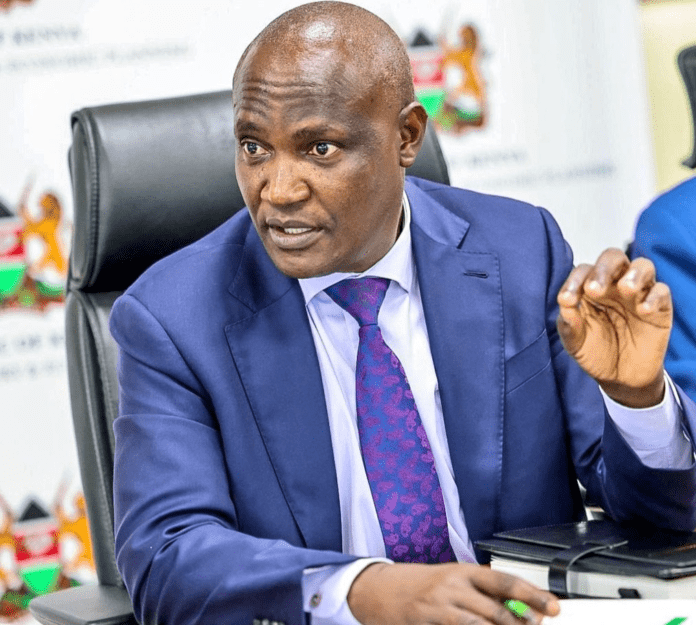Treasury Cabinet Secretary (CS) John Mbadi has come to the defense of President William Ruto’s administration amidst growing criticism over the country’s economic challenges.
Speaking on Friday, January 3, 2025, during the funeral of National Assembly Speaker Moses Wetang’ula’s mother in Bungoma, CS Mbadi dismissed the allegations leveled against the President, urging critics to be factual and fair in their assessments.
He argued that the current economic struggles were inherited from the previous administration, citing massive public debt and pending bills as key contributors to the crisis. According to Mbadi, these challenges predate President Ruto’s tenure.
“You have given me the job of resuscitating our economy, and I see a lot of concerns. I want to remind everyone, especially those criticizing, that opposition’s role is to critique. Even when I was in opposition, I focused on the negative five percent, not the positive 95 percent,” Mbadi said.
The CS pointed out that public debts and pending bills amounting to Ksh700 billion were accumulated before Ruto took office. He questioned why critics were blaming the current administration for addressing a problem it did not create.

“Are you telling us that the debt was incurred under President Ruto? Were the pending bills created during his presidency? Let’s not forget how we got here. Blaming him for fixing an inherited problem is dishonest,” he posed.
Mbadi further called on Kenyans to be patient, reiterating his commitment to stabilizing the economy and fulfilling the administration’s promises. He emphasized the government’s dedication to ensuring balanced development across all regions.
“We are working to ensure no region is left behind as we deliver on the President’s manifesto. Stabilizing the economy will take time, but we are determined to succeed,” he added.
The Treasury CS concluded by urging critics to offer constructive criticism while acknowledging the complexities of resolving longstanding economic issues.






![SHA Suspends Dozens of Health Facilities Over Alleged Fraud [LIST]](https://citymirror.ke/wp-content/uploads/2024/12/image-14-218x150.png)
